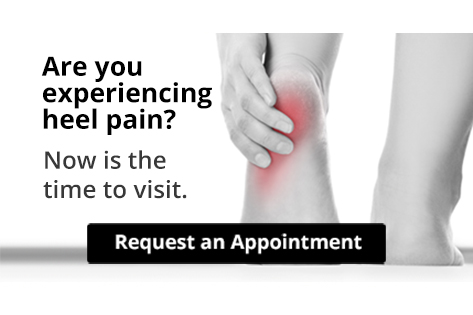Items filtered by date: June 2020
Methods That May Help To Prevent Falling
 Research has indicated many elderly people have difficulty recovering from injuries that have occurred from falling. This can lead to a loss of independence, disability, and possibly chronic pain. There are simple measures that can be implemented which may help to reduce the risk of falling. These can include participating in a routine exercise program, improving the lighting in the household, and removing worn carpeting. Existing medications can be reviewed when regular physical and eye examinations are performed. If you would like additional information about the effects falling can have on the feet, please speak with a podiatrist.
Research has indicated many elderly people have difficulty recovering from injuries that have occurred from falling. This can lead to a loss of independence, disability, and possibly chronic pain. There are simple measures that can be implemented which may help to reduce the risk of falling. These can include participating in a routine exercise program, improving the lighting in the household, and removing worn carpeting. Existing medications can be reviewed when regular physical and eye examinations are performed. If you would like additional information about the effects falling can have on the feet, please speak with a podiatrist.
Preventing falls among the elderly is very important. If you are older and have fallen or fear that you are prone to falling, consult with one of our podiatrists from Quality Foot Care Center. Our doctors will assess your condition and provide you with quality advice and care.
Every 11 seconds, an elderly American is being treated in an emergency room for a fall related injury. Falls are the leading cause of head and hip injuries for those 65 and older. Due to decreases in strength, balance, senses, and lack of awareness, elderly persons are very susceptible to falling. Thankfully, there are a number of things older persons can do to prevent falls.
How to Prevent Falls
Some effective methods that older persons can do to prevent falls include:
- Enrolling in strength and balance exercise program to increase balance and strength
- Periodically having your sight and hearing checked
- Discuss any medications you have with a doctor to see if it increases the risk of falling
- Clearing the house of falling hazards and installing devices like grab bars and railings
- Utilizing a walker or cane
- Wearing shoes that provide good support and cushioning
- Talking to family members about falling and increasing awareness
Falling can be a traumatic and embarrassing experience for elderly persons; this can make them less willing to leave the house, and less willing to talk to someone about their fears of falling. Doing such things, however, will increase the likelihood of tripping or losing one’s balance. Knowing the causes of falling and how to prevent them is the best way to mitigate the risk of serious injury.
If you have any questions, please feel free to contact our office located in Somerset, NJ. We offer the newest diagnostic and treatment technologies for all your foot care needs.
Read more about Falls PreventionMethods That May Help To Prevent Falling
 Research has indicated many elderly people have difficulty recovering from injuries that have occurred from falling. This can lead to a loss of independence, disability, and possibly chronic pain. There are simple measures that can be implemented which may help to reduce the risk of falling. These can include participating in a routine exercise program, improving the lighting in the household, and removing worn carpeting. Existing medications can be reviewed when regular physical and eye examinations are performed. If you would like additional information about the effects falling can have on the feet, please speak with a podiatrist.
Research has indicated many elderly people have difficulty recovering from injuries that have occurred from falling. This can lead to a loss of independence, disability, and possibly chronic pain. There are simple measures that can be implemented which may help to reduce the risk of falling. These can include participating in a routine exercise program, improving the lighting in the household, and removing worn carpeting. Existing medications can be reviewed when regular physical and eye examinations are performed. If you would like additional information about the effects falling can have on the feet, please speak with a podiatrist.
Preventing falls among the elderly is very important. If you are older and have fallen or fear that you are prone to falling, consult with Harvey Jacobs, DPM from Quality Foot Care Center. Our doctor will assess your condition and provide you with quality advice and care.
Every 11 seconds, an elderly American is being treated in an emergency room for a fall related injury. Falls are the leading cause of head and hip injuries for those 65 and older. Due to decreases in strength, balance, senses, and lack of awareness, elderly persons are very susceptible to falling. Thankfully, there are a number of things older persons can do to prevent falls.
How to Prevent Falls
Some effective methods that older persons can do to prevent falls include:
- Enrolling in strength and balance exercise program to increase balance and strength
- Periodically having your sight and hearing checked
- Discuss any medications you have with a doctor to see if it increases the risk of falling
- Clearing the house of falling hazards and installing devices like grab bars and railings
- Utilizing a walker or cane
- Wearing shoes that provide good support and cushioning
- Talking to family members about falling and increasing awareness
Falling can be a traumatic and embarrassing experience for elderly persons; this can make them less willing to leave the house, and less willing to talk to someone about their fears of falling. Doing such things, however, will increase the likelihood of tripping or losing one’s balance. Knowing the causes of falling and how to prevent them is the best way to mitigate the risk of serious injury.
If you have any questions, please feel free to contact our office located in Somerset, NJ . We offer the newest diagnostic and treatment technologies for all your foot care needs.
Alternate Wearing Flip Flops and Sandals
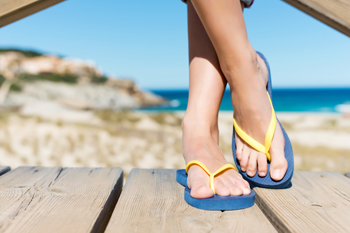 Many people choose to wear flip flops when the weather is warmer. Flip flops are easily worn, and are available in many styles and colors. However, despite their ease and popularity, wearing them frequently may wreak havoc on the feet. Patients can experience heel pain as a result of limited arch support. Additionally, the feet may become fatigued as the toes grasp to the shoes to keep them on the foot. There is typically a lack of cushioning in the heel area of the shoe, and cracked heels may develop as the skin becomes dry. It is beneficial to alternate wearing flip flops with a sandal that has a strap in the back, as this is generally helpful in providing the necessary support as daily activities are completed. It is suggested that you consult with a podiatrist who can discuss in depth how flip flops can affect the feet.
Many people choose to wear flip flops when the weather is warmer. Flip flops are easily worn, and are available in many styles and colors. However, despite their ease and popularity, wearing them frequently may wreak havoc on the feet. Patients can experience heel pain as a result of limited arch support. Additionally, the feet may become fatigued as the toes grasp to the shoes to keep them on the foot. There is typically a lack of cushioning in the heel area of the shoe, and cracked heels may develop as the skin becomes dry. It is beneficial to alternate wearing flip flops with a sandal that has a strap in the back, as this is generally helpful in providing the necessary support as daily activities are completed. It is suggested that you consult with a podiatrist who can discuss in depth how flip flops can affect the feet.
Flip-flops are not always the best choice of footwear. If you have any concerns about your feet or ankles, contact Harvey Jacobs, DPM from Quality Foot Care Center. Our doctor will assist you with all of your foot and ankle needs.
Flip-Flops and Feet
When the weather starts warming up, people enjoy wearing flip-flops. Flip-flops are comfortable, stylish, and easy to slip on and off; they're perfect for any summer beach goer. However, these shoes can cause harm to the feet.
How Can Flip-Flops Affect Me Long-Term?
- Ankle problems
- Hip problems
- Lower back problems
- Pain in the balls of the feet
- Problems with foot arches
- Changes in the way you walk
Are There Injuries Associated with Flip-Flops?
Yes. Since flip-flops are relatively weak and do not provide the same amount of support as sneakers, people who wear flip-flops regularly are more susceptible to injuries. On top of that, the open nature of the shoe makes your feet more prone to other problems, such as cuts and even infections. Common injuries and ailments include:
- Sprained ankles
- Blisters
- Infections
- Cuts and Scrapes
I like Wearing Flip-Flops. Are There Safe Alternatives?
When buying flip-flops, try to find ones that have sturdy soles and that are made of high-quality materials that will support for your feet. These flip-flops will cost more but will also last longer as a result.
If you have any questions please feel free to contact our office located in Somerset, NJ . We offer the newest diagnostic and treatment technologies for all your foot and ankle needs.
Alternate Wearing Flip Flops and Sandals
 Many people choose to wear flip flops when the weather is warmer. Flip flops are easily worn, and are available in many styles and colors. However, despite their ease and popularity, wearing them frequently may wreak havoc on the feet. Patients can experience heel pain as a result of limited arch support. Additionally, the feet may become fatigued as the toes grasp to the shoes to keep them on the foot. There is typically a lack of cushioning in the heel area of the shoe, and cracked heels may develop as the skin becomes dry. It is beneficial to alternate wearing flip flops with a sandal that has a strap in the back, as this is generally helpful in providing the necessary support as daily activities are completed. It is suggested that you consult with a podiatrist who can discuss in depth how flip flops can affect the feet.
Many people choose to wear flip flops when the weather is warmer. Flip flops are easily worn, and are available in many styles and colors. However, despite their ease and popularity, wearing them frequently may wreak havoc on the feet. Patients can experience heel pain as a result of limited arch support. Additionally, the feet may become fatigued as the toes grasp to the shoes to keep them on the foot. There is typically a lack of cushioning in the heel area of the shoe, and cracked heels may develop as the skin becomes dry. It is beneficial to alternate wearing flip flops with a sandal that has a strap in the back, as this is generally helpful in providing the necessary support as daily activities are completed. It is suggested that you consult with a podiatrist who can discuss in depth how flip flops can affect the feet.
Flip-flops are not always the best choice of footwear. If you have any concerns about your feet or ankles, contact one of our podiatrists from Quality Foot Care Center. Our doctors will assist you with all of your foot and ankle needs.
Flip-Flops and Feet
When the weather starts warming up, people enjoy wearing flip-flops. Flip-flops are comfortable, stylish, and easy to slip on and off; they're perfect for any summer beach goer. However, these shoes can cause harm to the feet.
How Can Flip-Flops Affect Me Long-Term?
- Ankle problems
- Hip problems
- Lower back problems
- Pain in the balls of the feet
- Problems with foot arches
- Changes in the way you walk
Are There Injuries Associated with Flip-Flops?
Yes. Since flip-flops are relatively weak and do not provide the same amount of support as sneakers, people who wear flip-flops regularly are more susceptible to injuries. On top of that, the open nature of the shoe makes your feet more prone to other problems, such as cuts and even infections. Common injuries and ailments include:
- Sprained ankles
- Blisters
- Infections
- Cuts and Scrapes
I like Wearing Flip-Flops. Are There Safe Alternatives?
When buying flip-flops, try to find ones that have sturdy soles and that are made of high-quality materials that will support for your feet. These flip-flops will cost more but will also last longer as a result.
If you have any questions please feel free to contact our office located in Somerset, NJ. We offer the newest diagnostic and treatment technologies for all your foot and ankle needs.
Read more about Flip Flops and Your FeetSweaty Feet Can Be Common Among Babies
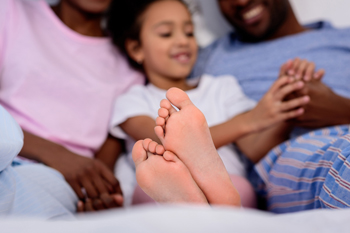 Sweating is the natural method to regulate body heat. Many people can become overheated as a result of exercising, having anxiety, and enduring hormonal changes. Additionally, genetic factors and existing medical conditions may play a significant role in having sweaty feet. This condition is known as plantar hyperhidrosis. When overheating occurs, the sweat glands are activated to restore the body to normal temperatures. Some children have feet that sweat for the majority of the day, and this may cause embarrassment if the shoes and socks are removed. If you notice your child has this condition, it is suggested that you consult with a podiatrist who can properly diagnose and treat it.
Sweating is the natural method to regulate body heat. Many people can become overheated as a result of exercising, having anxiety, and enduring hormonal changes. Additionally, genetic factors and existing medical conditions may play a significant role in having sweaty feet. This condition is known as plantar hyperhidrosis. When overheating occurs, the sweat glands are activated to restore the body to normal temperatures. Some children have feet that sweat for the majority of the day, and this may cause embarrassment if the shoes and socks are removed. If you notice your child has this condition, it is suggested that you consult with a podiatrist who can properly diagnose and treat it.
If you are suffering from hyperhidrosis contact Harvey Jacobs, DPM of Quality Foot Care Center. Our doctor can provide the care you need to attend to all of your foot and ankle needs.
Hyperhidrosis of the Feet
Hyperhidrosis is a rare disorder that can cause people to have excessive sweating of their feet. This can usually occur all on its own without rigorous activity involved. People who suffer from hyperhidrosis may also experience sweaty palms.
Although it is said that sweating is a healthy process meant to cool down the body temperature and to maintain a proper internal temperature, hyperhidrosis may prove to be a huge hindrance on a person’s everyday life.
Plantar hyperhidrosis is considered to be the main form of hyperhidrosis. Secondary hyperhidrosis can refer to sweating that occurs in areas other than the feet or hands and armpits. Often this may be a sign of it being related to another medical condition such as menopause, hyperthyroidism and even Parkinson’s disease.
In order to alleviate this condition, it is important to see your doctor so that they may prescribe the necessary medications so that you can begin to live a normal life again. If this is left untreated, it is said that it will persist throughout an individual’s life.
A last resort approach would be surgery, but it is best to speak with your doctor to find out what may be the best treatment for you.
If you have any questions please feel free to contact our office located in Somerset, NJ . We offer the newest diagnostic and treatment technologies for all your foot and ankle needs.
Sweaty Feet Can Be Common Among Babies
 Sweating is the natural method to regulate body heat. Many people can become overheated as a result of exercising, having anxiety, and enduring hormonal changes. Additionally, genetic factors and existing medical conditions may play a significant role in having sweaty feet. This condition is known as plantar hyperhidrosis. When overheating occurs, the sweat glands are activated to restore the body to normal temperatures. Some children have feet that sweat for the majority of the day, and this may cause embarrassment if the shoes and socks are removed. If you notice your child has this condition, it is suggested that you consult with a podiatrist who can properly diagnose and treat it.
Sweating is the natural method to regulate body heat. Many people can become overheated as a result of exercising, having anxiety, and enduring hormonal changes. Additionally, genetic factors and existing medical conditions may play a significant role in having sweaty feet. This condition is known as plantar hyperhidrosis. When overheating occurs, the sweat glands are activated to restore the body to normal temperatures. Some children have feet that sweat for the majority of the day, and this may cause embarrassment if the shoes and socks are removed. If you notice your child has this condition, it is suggested that you consult with a podiatrist who can properly diagnose and treat it.
If you are suffering from hyperhidrosis contact one of our podiatrists of Quality Foot Care Center. Our doctors can provide the care you need to attend to all of your foot and ankle needs.
Hyperhidrosis of the Feet
Hyperhidrosis is a rare disorder that can cause people to have excessive sweating of their feet. This can usually occur all on its own without rigorous activity involved. People who suffer from hyperhidrosis may also experience sweaty palms.
Although it is said that sweating is a healthy process meant to cool down the body temperature and to maintain a proper internal temperature, hyperhidrosis may prove to be a huge hindrance on a person’s everyday life.
Plantar hyperhidrosis is considered to be the main form of hyperhidrosis. Secondary hyperhidrosis can refer to sweating that occurs in areas other than the feet or hands and armpits. Often this may be a sign of it being related to another medical condition such as menopause, hyperthyroidism and even Parkinson’s disease.
In order to alleviate this condition, it is important to see your doctor so that they may prescribe the necessary medications so that you can begin to live a normal life again. If this is left untreated, it is said that it will persist throughout an individual’s life.
A last resort approach would be surgery, but it is best to speak with your doctor to find out what may be the best treatment for you.
If you have any questions please feel free to contact our office located in Somerset, NJ. We offer the newest diagnostic and treatment technologies for all your foot and ankle needs.
Read more about Hyperhidrosis of the FeetReasons to Visit a Podiatrist
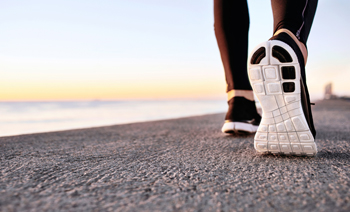 Podiatrists treat a variety of issues surrounding the toes, feet, and ankles. They are able to provide a diagnosis and treatment for a variety of lower extremity conditions. If you are beginning to pick up running as a hobby, podiatrists are able to detect potential problems and recommend proper prevention methods. If you are feeling joint or heel pain, a podiatrist will be able to help detect the cause of those problems as well. For example, joint pain may be a sign of arthritis, and heel pain may be indicative of a heel spur that needs treatment. Additionally, podiatrists are experts in removing calluses and corns, as well as treating bunions that can be incredibly painful without treatment. If you suspect you have athlete’s foot, visiting a podiatrist is also suggested because a prescription may be necessary. Overall, podiatrists can be extremely useful in treating and relieving irritating foot problems.
Podiatrists treat a variety of issues surrounding the toes, feet, and ankles. They are able to provide a diagnosis and treatment for a variety of lower extremity conditions. If you are beginning to pick up running as a hobby, podiatrists are able to detect potential problems and recommend proper prevention methods. If you are feeling joint or heel pain, a podiatrist will be able to help detect the cause of those problems as well. For example, joint pain may be a sign of arthritis, and heel pain may be indicative of a heel spur that needs treatment. Additionally, podiatrists are experts in removing calluses and corns, as well as treating bunions that can be incredibly painful without treatment. If you suspect you have athlete’s foot, visiting a podiatrist is also suggested because a prescription may be necessary. Overall, podiatrists can be extremely useful in treating and relieving irritating foot problems.
If you are dealing with pain in your feet and ankles, you may want to seek help from a podiatrist. Feel free to contact Harvey Jacobs, DPM from Quality Foot Care Center. Our doctor can provide the care you need to keep you pain-free and on your feet.
What Is a Podiatrist?
A podiatrist is a doctor of podiatric medicine who diagnoses and treats conditions of the foot, ankle, and related structures of the leg. Your podiatrist may specialize in a certain field such as sports medicine, wound care, pediatrics, and diabetic care. Podiatrists have the ability to become board certified through training, clinical experience, and then taking an exam.
What Do Podiatrists Do?
On a daily basis, a podiatrist may perform the following activities:
- Diagnose foot ailments such as ulcers, tumors, fractures, etc.
- Use innovative methods to treat conditions
- Use corrective orthotics, casts, and strappings to correct deformities
- Correct walking patterns and balance
- Provide individual consultations to patients
It is very important that you take care of your feet. It’s easy to take having healthy feet for granted, however foot problems tend to be among the most common health conditions. Podiatrists can help diagnose and treat a variety of feet related conditions, so it is crucial that you visit one if you need assistance.
If you have any questions please feel free to contact our office located in Somerset, NJ . We offer the newest diagnostic and treatment technologies for all your foot and ankle needs.
Reasons to Visit a Podiatrist
 Podiatrists treat a variety of issues surrounding the toes, feet, and ankles. They are able to provide a diagnosis and treatment for a variety of lower extremity conditions. If you are beginning to pick up running as a hobby, podiatrists are able to detect potential problems and recommend proper prevention methods. If you are feeling joint or heel pain, a podiatrist will be able to help detect the cause of those problems as well. For example, joint pain may be a sign of arthritis, and heel pain may be indicative of a heel spur that needs treatment. Additionally, podiatrists are experts in removing calluses and corns, as well as treating bunions that can be incredibly painful without treatment. If you suspect you have athlete’s foot, visiting a podiatrist is also suggested because a prescription may be necessary. Overall, podiatrists can be extremely useful in treating and relieving irritating foot problems.
Podiatrists treat a variety of issues surrounding the toes, feet, and ankles. They are able to provide a diagnosis and treatment for a variety of lower extremity conditions. If you are beginning to pick up running as a hobby, podiatrists are able to detect potential problems and recommend proper prevention methods. If you are feeling joint or heel pain, a podiatrist will be able to help detect the cause of those problems as well. For example, joint pain may be a sign of arthritis, and heel pain may be indicative of a heel spur that needs treatment. Additionally, podiatrists are experts in removing calluses and corns, as well as treating bunions that can be incredibly painful without treatment. If you suspect you have athlete’s foot, visiting a podiatrist is also suggested because a prescription may be necessary. Overall, podiatrists can be extremely useful in treating and relieving irritating foot problems.
If you are dealing with pain in your feet and ankles, you may want to seek help from a podiatrist. Feel free to contact one of our podiatrists from Quality Foot Care Center. Our doctors can provide the care you need to keep you pain-free and on your feet.
What Is a Podiatrist?
A podiatrist is a doctor of podiatric medicine who diagnoses and treats conditions of the foot, ankle, and related structures of the leg. Your podiatrist may specialize in a certain field such as sports medicine, wound care, pediatrics, and diabetic care. Podiatrists have the ability to become board certified through training, clinical experience, and then taking an exam.
What Do Podiatrists Do?
On a daily basis, a podiatrist may perform the following activities:
- Diagnose foot ailments such as ulcers, tumors, fractures, etc.
- Use innovative methods to treat conditions
- Use corrective orthotics, casts, and strappings to correct deformities
- Correct walking patterns and balance
- Provide individual consultations to patients
It is very important that you take care of your feet. It’s easy to take having healthy feet for granted, however foot problems tend to be among the most common health conditions. Podiatrists can help diagnose and treat a variety of feet related conditions, so it is crucial that you visit one if you need assistance.
If you have any questions please feel free to contact our office located in Somerset, NJ. We offer the newest diagnostic and treatment technologies for all your foot and ankle needs.
Read more about What is a Podiatrist?
Possible Reasons for Foot and Ankle Pain
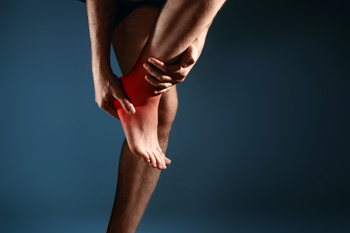 A common type of foot pain is known as plantar fasciitis. This condition can cause considerable pain and discomfort, and occurs when the plantar fascia becomes injured or torn. A portion of the pain may subside when the calf muscles are stretched during the day. A small crack in the bones of the feet is referred to as a stress fracture, and this is a common ailment among runners. It can gradually develop if mileage and running time are increased too quickly. Some patients find it helpful to wear a boot that can provide stability as the healing process occurs. When shoes are worn that do not have adequate room for the toes to move freely in, a bunion may develop. This is considered to be a deformity, and an obvious symptom is a bony protrusion on the side of the big toe. If you have any type of pain in your feet or ankles, please consult with a podiatrist who can properly diagnose and treat foot pain.
A common type of foot pain is known as plantar fasciitis. This condition can cause considerable pain and discomfort, and occurs when the plantar fascia becomes injured or torn. A portion of the pain may subside when the calf muscles are stretched during the day. A small crack in the bones of the feet is referred to as a stress fracture, and this is a common ailment among runners. It can gradually develop if mileage and running time are increased too quickly. Some patients find it helpful to wear a boot that can provide stability as the healing process occurs. When shoes are worn that do not have adequate room for the toes to move freely in, a bunion may develop. This is considered to be a deformity, and an obvious symptom is a bony protrusion on the side of the big toe. If you have any type of pain in your feet or ankles, please consult with a podiatrist who can properly diagnose and treat foot pain.
Foot and ankle trauma is common among athletes and the elderly. If you have concerns that you may have experienced trauma to the foot and ankle, consult with Harvey Jacobs, DPM from Quality Foot Care Center. Our doctor will assess your condition and provide you with quality foot and ankle treatment.
Foot and ankle trauma cover a range of injuries all over the foot; common injuries include:
- Broken bones
- Muscle strains
- Injuries to the tendons and ligaments
- Stress fractures
Symptoms
Symptoms of foot and ankle injuries vary depending on the injury, but more common ones include:
- Bruising
- Inflammation/ Swelling
- Pain
Diagnosis
To properly diagnose the exact type of injury, podiatrists will conduct a number of different tests. Some of these include sensation and visual tests, X-rays, and MRIs. Medical and family histories will also be taken into account.
Treatment
Once the injury has been diagnosed, the podiatrist can than offer the best treatment options for you. In less severe cases, rest and keeping pressure off the foot may be all that’s necessary. Orthotics, such as a specially made shoes, or immobilization devices, like splints or casts, may be deemed necessary. Finally, if the injury is severe enough, surgery may be necessary.
If you have any questions, please feel free to contact our office located in Somerset, NJ . We offer the newest diagnostic and treatment technologies for all your foot care needs.
